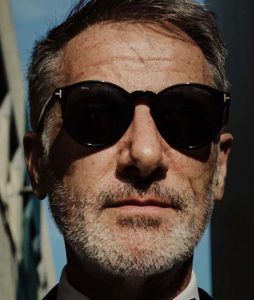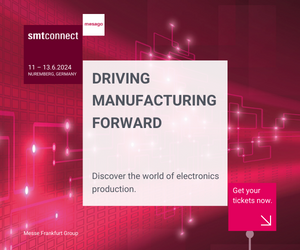What’s the SCOOP – That Was February

By Philip Spagnoli Stoten Founder of SCOOP
In my last column, two weeks ago, I shared that Melbourne, the city I currently call home was going into a five day snap lockdown to combat some COVID-19 transmission that had escaped from hotel quarantine. Well, the good news is that five day quarantine seems to have worked and life downunder is pretty much back to what we are calling “covid-normal”. I even managed to get to the men’s semi final of the Australian Open tennis last Friday evening.
Meanwhile the world continues to be occupied with the supply chain challenges that the pandemic has brought about. And those challenges are indeed numerous and complex. But perhaps the most pressing supply chain challenge relates to the roll out of the vaccine around the world. Australia is fortunate to have vaccines ready to go, to not have such an urgent need to vaccinate (thanks to very low case numbers), and to be building out a local supply. Many countries are less fortunate and getting the vaccine to where it’s desperately needed rather than where it’s easily afforded is a huge challenge!
- Meanwhile the electronic devices supply chain has its own challenges. In a letter to the Wall Street Journal, David Loftus, President and CEO of the ECIA (Electronic Components Industry Association) writes “Big Automotive Chip Shortage Is No Surprise” adding, “The focus on lean should have been balanced with a pragmatic view on the extreme cost of idled automotive production lines.”
- David was responding to an article in the WSJ entitled “How Car Makers Collided With a Global Chip Shortage”. Auto demand rebounded from a coronavirus slowdown for Ford, GM, VW and others, but the industry misjudged supply lines of semiconductors that control engines, airbags, touchscreens.
- And it seems the government is concerned too. According to Ars Technica, “The Biden administration has pledged to take immediate action to address a global shortage of semiconductors that has forced the closure of several US car plants.” Jen Psaki, White House press secretary, said the administration was “identifying potential chokepoints in the supply chain” after coming under pressure from lawmakers, semiconductor companies, and car manufacturers over the shortages. Read more in their feature “White House hastens to address global chip shortage”
- In the WSJ we read that “Chip Makers Applaud Biden’s Catch-Up Effort but See No Quick Fix”. Industry executives expect U.S. push to address chip shortages will take years amid surging demand, and the growing complexity of supply chains. Well we all knew that supply chains are complex and can’t be switched on or off overnight…
- And these supply chains go down several tier all the way to the rare earth materials used in high-tech industries like sustainable energy, electric vehicle batteries and space exploration. In Forbes, Wil Shih write, “It Might Take A Long Time For The U.S. To Become Self-Sufficient In Rare Earth Materials”. Once again the U.S. is faced with the potential of restricted access to rare earth elements. The President ordered a supply chain review examining U.S. reliance on overseas sources for semiconductors, rare earth elements, batteries, and pharmaceuticals. China is the global leader in mining, refining, and component manufacturing of products that use rare earth elements, so in the face of escalating tensions between the two countries, many U.S. manufacturers might be vulnerable. A supply chain specialist in Washington recently asked me how hard it would be for the U.S. to become self-sufficient in this category. The answer: it’s complicated.
- And according to WIRED, “Biden Faces a Steep Challenge to Unite Democracies on Tech”. With tech policy, sorting the world into democratic and authoritarian buckets is far trickier than it sounds.
- Meanwhile, “3D Printing Firm Markforged To Go Public In $2.1 Billion SPAC Deal”. Forbes Manufacturing Editor, Amy Feldman explains the whole thing, suggesting that “In the latest test for investors’ appetite for 3D printing, Markforged announced its intent to go public in a merger with a blank-check company founded by Kevin Hartz, co-founder and chairman of Eventbrite. After the merger with publicly traded One, Markforged is expected to have an equity value of $2.1 billion. Time to learn a little more about these SPACs!
- In another major piece of acquisition news this week, “Dürr Group strengthens digital range through acquisition of Cogiscan”. I was lucky enough to speak to CEOs of both Cogiscan and iTAC just days after the announcement. You can see the EMS@C-Level special interview on YouTube.
- Also in Forbes, Marco Annuizata explains why “CloudNC Believes The Future Of CNC Manufacturing Is Autonomous”. There’s too much talk and not enough action around Industry 4.0, it’s all vision and almost no delivery. That’s the view of manufacturing visionary and Forbes 30under30 recipient Theo Saville, co-founder and CEO of CloudNC. Like many, they are looking at autonomous manufacturing as the next real revolution and they see the current noise around Industry 4.0 as just part of the ‘compute/digital’ revolution, or Industry 3.0. Indeed, it feels like most of what people refer to as the fourth industrial revolution is just the manufacturing industry catching up with sectors like e-commerce, social media, SaaS and logistics just to name a few.
- Theo Saville appeared on The Eric Miscoll Show in December with fellow autonomy evangelist Yoav Zingher of Launchpad.build.
- And while we’re talking video, check out the latest Eric Miscoll Show with Season groups CEO Carl Hung, Whitehorse Laboratories Founder, Mark Rinehart, exploring the latest from China.
And that’s the SCOOP for this week, more in March!












